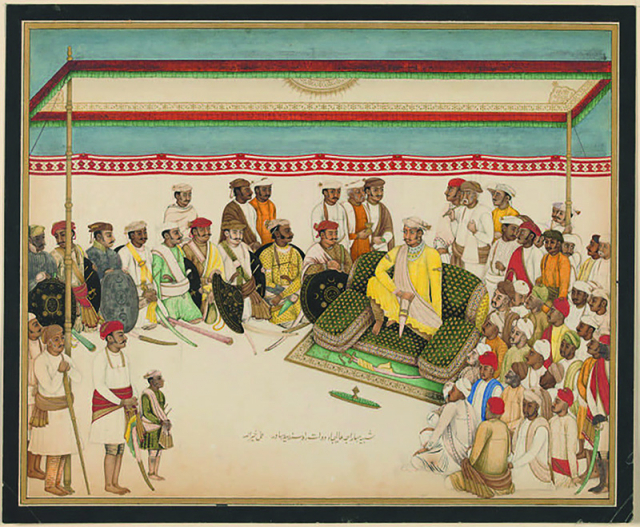Real Lives: Maharaja’s German: Anthony Pohlmann in India
Historian feature

Our series ‘Real Lives’ seeks to put the story of the ordinary person into our great historical narrative. We are all part of the rich fabric of the communities in which we live and we are affected to greater and lesser degrees by the big events that happen on a daily basis. Sometimes we might even play a part in the big events, although our names are not recorded, while on other occasions we are witnesses to events and times which we would now consider remarkable. Sometimes our regular lives are the perfect illustration of how people live at any given time – but all our lives matter and we want to celebrate some of those lives here. If you have any people that you think might also fit this category and would like to write about them, please do contact: martin.hoare@history.org.uk
Relations between Britain and the Indian states in the late eighteenth century were very complex. The involvement of various European mercenaries added further to this complicated picture. In this article Arunansh Goswami looks at the motivation and actions of one of these mercenaries, the German Anthony Pohlmann, who became an inspiration for a character in one of author Bernard Cornwell’s ‘Sharpe’ novels. The real story of Pohlmann is even more intriguing than his fictional version.
Like Tsarist Russia, the British in Asia were engaging in what has been mentioned as ‘The Great Game’ by Rudyard Kipling in his novel Kim. This was a form of politico-diplomatic contest, to decide the zone of influence over Afghanistan and neighbouring Central Asia. The British were busy combating the plethora of European mercenaries, many of whom became aristocratic feudal lords known as ‘Sardars’, thoroughly Indianised and a deep part of the politico-military architecture of native powers in India. These Europeans, many of them coming from countries that had little love lost with Britain, introduced European techniques and expertise in warfare, making native Indian armies tougher opponents for the British. The knowledge they had of the mode of operation of the British military was a force multiplier for the native rulers in India...
This resource is FREE for Historian HA Members.
Non HA Members can get instant access for £2.49

